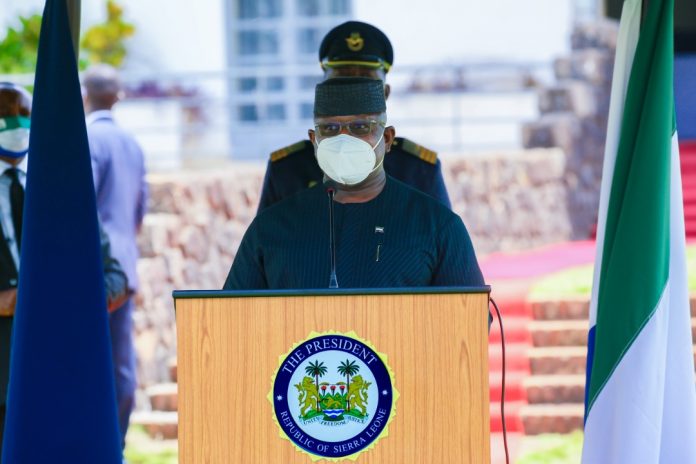By Amin Kef Sesay
The entire law fraternity and sorority must have been deeply embarrassed when former Attorney General going against the grain of her noble profession vainly tried to prove in court charges that were improperly and erroneously investigated in the treason trial of retired Major Palo Conteh. This capital blunder brings up to the fore what the role of the Prosecutor in a matter is, as well as the crying need for the Director of Public Prosecutions (DPP) Office to be capacitated and strengthened to avoid such embarrassments in the future
That said, the Prosecutor is an administrator of justice, a zealous advocate and an officer of the court. First and foremost, the Prosecutor’s office should exercise sound discretion and independent judgment in the performance of the prosecution function.
The Prosecutor should act with diligence and promptness to investigate, litigate and dispose of criminal charges, consistent with the interests of justice and with due regard for fairness, accuracy and rights of the defendant, victims and witnesses.
Thus, the Prosecutor’s office should be organized and supported with adequate staff and facilities to enable it to process and resolve criminal charges with fairness and efficiency.
Fundamentally, the primary duty of the Prosecutor is to seek justice within the bounds of the law, not merely to convict. The Prosecutor serves the public interest and should act with integrity and balanced judgment to increase public safety both by pursuing appropriate criminal charges of appropriate severity, and by exercising discretion to not pursue criminal charges in appropriate circumstances. The Prosecutor should seek to protect the innocent and convict the guilty, consider the interests of victims and witnesses, and respect the constitutional and legal rights of all persons, including suspects and defendants.
The Prosecutor should know and abide by the standards of professional conduct as expressed in applicable law and ethical codes and opinions in the applicable jurisdiction. The Prosecutor should avoid an appearance of impropriety in performing the prosecution function. A Prosecutor should seek out, and the Prosecutor’s office should provide, supervisory advice and ethical guidance when the proper course of prosecutorial conduct seems unclear. A Prosecutor who disagrees with a governing ethical rule should seek its change if appropriate, and directly challenge it if necessary, but should comply with it unless relieved by court order.
The Prosecutor should make use of ethical guidance offered by his/her law officers department.
The Prosecutor should be knowledgeable about, consider, and where appropriate develop or assist in developing alternatives to prosecution or conviction that may be applicable in individual cases or classes of cases. The prosecutor’s office should be available to assist address problems that lead to, or result from, criminal activity or perceived flaws in the criminal justice system.
The Prosecutor is not merely a case-processor but also a problem-solver responsible for considering broad goals of the criminal justice system. The prosecutor should seek to reform and improve the administration of criminal justice, and when inadequacies or injustices in the substantive or procedural law come to the prosecutor’s attention, the prosecutor should stimulate and support efforts for remedial action. The Prosecutor should provide service to the community, including involvement in public service and Bar activities, public education, community service activities, and Bar leadership positions. A prosecutorial office should support such activities, and the office’s budget should include funding.




